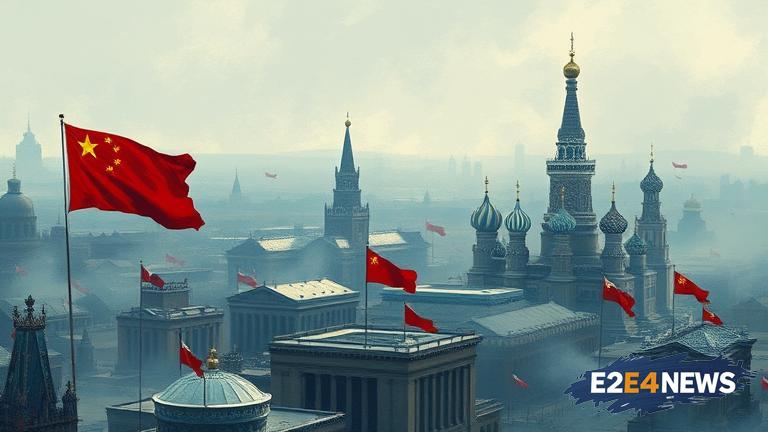The idea of pursuing regime change in China and Russia has been a topic of discussion among policymakers and scholars for years. However, this approach is not only unrealistic but also dangerous, as it can lead to unintended consequences and destabilize the global order. The United States, in particular, has been accused of attempting to impose its will on other nations, often with disastrous results. The examples of Iraq, Libya, and Afghanistan are stark reminders of the failures of regime change policies. In the case of China and Russia, the situation is even more complex, given their economic and military might. Both nations have made significant strides in recent years, with China emerging as a global economic powerhouse and Russia reasserting its influence in international affairs. The notion that the US or any other country can simply impose regime change on these nations is delusional. China and Russia have their own distinct systems of government, which are deeply rooted in their histories and cultures. They are not democracies in the Western sense, but they have their own forms of governance that are tailored to their unique circumstances. Furthermore, both nations have a strong sense of national pride and sovereignty, which makes them resistant to external interference. The US and its allies have tried various tactics to undermine the governments of China and Russia, including economic sanctions, propaganda campaigns, and support for opposition groups. However, these efforts have been largely unsuccessful, and have often backfired. For instance, the US sanctions on Russia have only served to strengthen the resolve of the Russian people and increase their support for the government. Similarly, the attempts to undermine the Chinese government through propaganda and disinformation have been met with fierce resistance from the Chinese people, who are increasingly proud of their nation’s achievements. The pursuit of regime change in China and Russia is also driven by a flawed assumption that these nations are inherently unstable and prone to collapse. However, this assumption is not supported by the facts. Both China and Russia have made significant progress in recent years, with China experiencing rapid economic growth and Russia modernizing its military. They are not on the brink of collapse, but rather are emerging as major players on the global stage. The delusional pursuit of regime change in China and Russia is also driven by a lack of understanding of the complexities of international relations. The world is no longer a unipolar system, where one nation can dictate its will to others. Rather, it is a multipolar system, where nations have their own interests and agendas. The US and its allies must learn to navigate this new reality, rather than trying to impose their will on other nations. In conclusion, the pursuit of regime change in China and Russia is a delusional and misguided endeavor, doomed to fail due to the complexities of international relations and the resilience of these nations. The US and its allies must adopt a more nuanced approach, one that recognizes the sovereignty and dignity of other nations and seeks to engage with them on the basis of mutual respect and cooperation. This approach will not only be more effective in the long run, but it will also help to reduce tensions and promote a more peaceful and stable world. The era of regime change is over, and it is time for a new era of diplomacy and cooperation to begin. The world needs a new paradigm, one that recognizes the diversity and complexity of international relations and seeks to promote peace, stability, and cooperation among nations. The US and its allies must be willing to listen and learn from other nations, rather than trying to impose their will on them. Only through this approach can we hope to build a more just and peaceful world, where nations can coexist and thrive in a spirit of mutual respect and cooperation.





